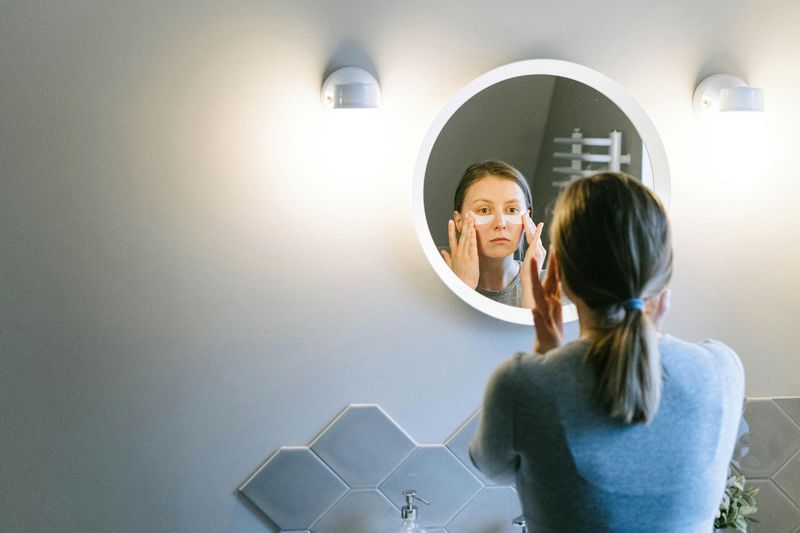11 Types of Women Who Might Be Tough to Date

Dating can be exciting, messy, and sometimes downright confusing. If you’ve ever wondered why certain connections feel harder than they should, you’re not alone. Some personality patterns create friction that love alone can’t smooth out. Read on for a candid, compassionate look at 11 types of women who might be tough to date—and what those patterns can teach us about boundaries, communication, and emotional resilience.
1. The Perfectionist

She holds herself to sky-high standards and often expects the same from you, creating an atmosphere where nothing ever feels finished or truly celebrated. Compliments may be brushed off, milestones scrutinized, and minor flaws magnified into urgent problems. Dates can feel like performance reviews, and spontaneity suffers under meticulous planning. While her drive can inspire, constant optimization can erode warmth and ease. It’s easy to feel like you’re always falling short, even when you’re trying your best. The relationship may improve with explicit appreciation, flexible expectations, and learning to leave room for imperfection. Without that, pressure accumulates, joy thins, and love starts to resemble an endless audit.
2. The Overthinker

Words become riddles, pauses become signs, and texts morph into puzzles demanding solutions. She dissects conversations long after they end, replaying tone and timing until anxiety frays connection. You might feel cross-examined about harmless details, or find your casual jokes reviewed like court evidence. Her intelligence shines, but analysis can outpace reality, creating problems that weren’t there. Curiosity turns into vigilance, and reassurance seems to have a short shelf life. The relationship benefits from explicit communication, check-ins, and shared tools for calming spirals. Without mutual strategies, both partners can feel exhausted. Patience helps, but so does encouraging presence over prediction, and choosing clarity over catastrophizing.
3. The Control Freak

Schedules, preferences, and processes are orchestrated down to the minute, leaving little room for improvisation. She’s efficient, decisive, and often impressively competent, but partnership can feel like following instructions rather than participating. Suggestions may be overridden, and autonomy can shrink under constant correction. Her order brings stability, yet it also risks smothering spontaneity and mutual decision-making. Over time, resentment grows if your needs are sidelined. Healthy dynamics require shared control, explicit negotiation of domains, and respect for different methods. With boundaries and trust, her strengths can shine without dominating. Without them, connection stiffens, warmth cools, and love feels like a project under strict management.
4. The Commitment-Phobe

Everything’s fun—until definitions, timelines, or deeper emotions enter the room. She may be affectionate and engaging, yet skittish when the relationship asks for roots. Plans stay vague, labels feel heavy, and momentum stalls right as intimacy forms. When closeness rises, she creates distance—through busyness, ambiguity, or sabotage. The ambiguity can be thrilling at first, then maddening. A healthier path invites honest conversations about fears, pace, and compatibility. If safety and autonomy are respected, growth is possible. But if clarity never arrives, you’re signing up for a treadmill of nearly-there moments. Know your non-negotiables, and don’t confuse mixed signals with mystery.
5. The Drama Seeker

Conflict becomes a spark, silence a threat, and calm an invitation to stir the pot. She craves intensity—the plot twists, grand gestures, and dizzying highs that make ordinary days feel cinematic. Unfortunately, those highs often require lows, and stability is mistaken for boredom. Minor issues escalate, apologies become spectacles, and peace feels fleeting. The relationship can start like fireworks and end like a storm. Grounding rituals, emotional regulation, and aligned expectations help, but only if both partners embrace them. Without that, you’ll be living in cliffhangers. Love thrives on depth, not chaos; if drama replaces intimacy, you’ll constantly trade safety for spectacle.
6. The Self-Absorbed One

Her story always center stage, yours a recurring cameo. Conversations orbit her accomplishments, frustrations, and desires, leaving little space for your inner world. She may be charismatic and magnetic, yet empathy appears only when it benefits her narrative. You’ll find yourself editing needs to avoid pushback, or praising to keep the peace. Over time, emotional malnutrition sets in. Healthy relationships require reciprocity—curiosity about you, active listening, mutual care. Boundaries, direct requests, and consequences can shift dynamics, but only if she values mutuality. Without change, the partnership feels like a mirror she gazes into, while you fade behind the frame.
7. The Pessimist

Storm clouds gather even on bright days. She anticipates disappointment, critiques plans, and spots flaws faster than possibilities. Practical caution is valuable, but relentless negativity drains momentum and joy. Compliments may be met with skepticism, hopes with worst-case scenarios, and efforts with sighs. You might start censoring enthusiasm to avoid deflation. Compassion helps, yet optimism needs room to breathe. Align on problem-solving: acknowledge risks, then co-create paths forward. Share gratitude practices, celebrate small wins, and protect pockets of lightness. Without balance, the relationship becomes a forecast of rain that teaches you to carry an umbrella even indoors—and to forget the sun exists.
8. The Jealous Type

Trust feels brittle, and neutral situations get colored by suspicion. A delayed reply becomes a verdict; a friendly conversation, a threat. She may monitor, question, or seek constant reassurance that never lasts. Underneath lies fear of abandonment, but control can masquerade as care. The relationship shrinks when you’re always proving innocence. Rebuilding trust requires transparency, agreed boundaries, and therapy-friendly tools like reassurance schedules and cognitive reframes. Both partners must commit to truth and patience. Without real progress, jealousy becomes a third person in the relationship—loud, relentless, and impossible to ignore.
9. The Workaholic

Ambition fuels her days and often her nights. She’s impressive, reliable, and always in motion—but intimacy struggles to find a time slot. Dates get rescheduled, texts delayed, and vacations turned into remote-work marathons. You may feel like a task on a crowded to-do list. Career dedication is admirable, yet love needs consistent attention to grow. Clear priorities, time-blocking for connection, and technology boundaries can restore balance. Celebrate her drive while protecting the relationship’s oxygen. Without mutual commitment to presence, affection becomes transactional, and closeness withers beneath deadlines.
10. The Indecisive One

Every choice becomes a labyrinth—menus, weekend plans, even relationship labels. She fears choosing wrong, so options multiply while momentum stalls. You may carry the planning burden, then face regret or second-guessing afterward. Ambivalence can feel considerate, yet it quietly erodes confidence and progress. Gentle structure helps: limited choices, decision deadlines, and a bias toward trying rather than perfect choosing. Encourage experiments and re-evaluation rather than endless speculation. Without practice, uncertainty becomes the default, and the relationship idles in maybe, draining enthusiasm and clarity.
11.The Emotionally Unavailable Woman

She keeps her heart behind well-built walls—polite, pleasant, and distant. Conversations skim the surface; vulnerability gets postponed indefinitely. You sense tenderness beneath the armor, yet bids for closeness bounce off guarded replies. Months can pass without knowing what truly moves her. Safety, not pressure, is the key: model openness, invite depth slowly, and name the impact of distance. If trauma or habit fuels withdrawal, therapy can help. But you can’t pry open a locked door from the outside. Know your limits; love requires access. Without reciprocity, you’ll feel alone beside someone who’s right there.

Comments
Loading…